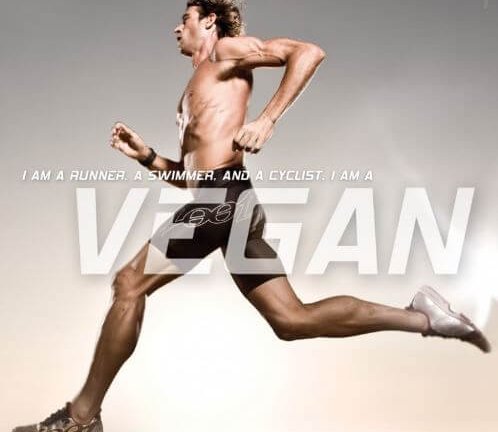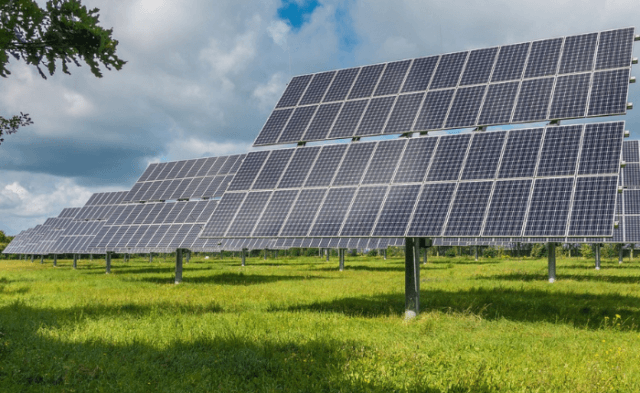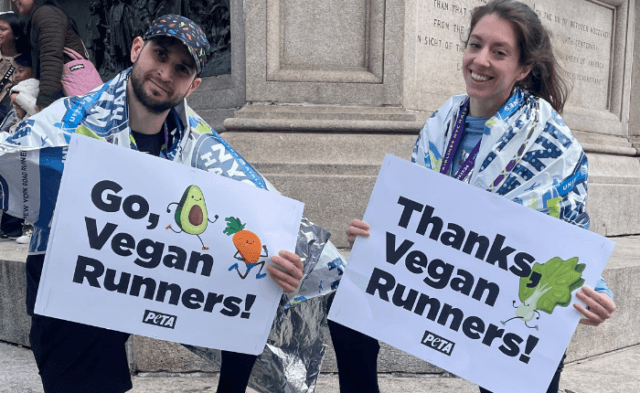When I walked into Plant Food + Wine in Venice, California, during the summer of 2017, I could tell that I was going to get more than just a great meal. It was apparent that there was a power meeting going on in the private dining room, and I learned that it was a planning meeting for the breakout movie The Game Changers. After a few minutes, I watched James Wilks enter the restaurant, followed by David Carter. I’d been following Carter, aka “the 300 Pound Vegan,” for several years, and there he was. I had to abandon my discretion and go over to him to introduce myself, say hello, and grab a picture. Soon after that, Brendan Brazier showed up and I repeated the shameless act. Yes, in the current world of social media adulation of athletes and Hollywood personalities, a cardiologist pays deference to the impact and following of vegan athletes. But why do these super-athletes and others eat chia, not chicken? And what effect is it having on the world?
Carter is worthy of some further mention. He came up as a defensive lineman, a position in which bigger is better. He excelled at UCLA and went on to be drafted by the NFL’s Arizona Cardinals. He participated in the ritual of consuming meat, milkshakes, eggs, and bacon. Soon, his excess weight and animal-based diet were taking a toll, causing him to develop high blood pressure and pain. His wife was eating vegan, and he watched the documentary Forks Over Knives with her in 2014. The film struck him like a lightning bolt, and he decided to go vegan immediately. The results? The pain was gone, and he felt faster and stronger. There was pushback from others in the NFL, but Carter persisted and has led the charge in a movement for players to consume plant-based foods to power superior performance. Tom Brady—Patriots quarterback and future NFL Hall of Famer—who eats vegan the majority of the time, has also demonstrated that “plant power” isn’t an oxymoron.
Why does Carter’s advocacy for a vegan lifestyle matter? Why is the testimony of physicians such as Dean Ornish, Caldwell Esselstyn, Neal Barnard, John A. McDougall, Joel Fuhrman, and others not enough to change everyone’s eating habits? Despite the evidence, many still seem to believe that steaks equal strength and plants equal passivity. An NFL player like Carter powered by sprouts and beans, a champion triathlete like Brazier, and a UFC champion like Wilks make a statement with their ripped bodies and athletic accomplishments that my fellow members of the medical community can’t. While people may have heard that their risk of developing heart disease, cancer, type 2 diabetes, and other chronic conditions may be abated by eating vegan, learning that they can be a “tough mudder” right now by eating fruits and vegetables can have an even greater impact.
Later last year, I had the pleasure of co-hosting a charity event in New York City with David Carter for the development of healthy vegan food programs for the schools of Brooklyn and other boroughs. Carter spoke with eloquence and passion about his journey from meat to beans and how it’s improved his health. His advocacy is a powerful testimony, and his kind heart shines through when he speaks about his passion for vegan eating.
Does a vegan diet work only for dudes? After all, Carter and Brazier, along with Kyrie Irving, Rich Roll, John Salley, Scott Jurek, and other guys seem to get most of the attention in stories about plant-powered athletes, but women athletes have enjoyed comparable success, too. I had the pleasure a few years ago to meet Hillary Biscay, who raced in the “ironman” circuit for over 10 years. During that period, she completed 66 ironman triathlons. In 2010, she finished second in the Ultraman World Championships, and in 2013, she took the title. Biscay‘s remarkable success throughout her career was fueled entirely by plants.
So while doctors, dieticians, nurses, and professional societies all may advocate for the adequacy and advantages of a vegan lifestyle, the rise of the vegan athlete—ripped, fast, and competitive with their animal-powered peers—has been a powerful testimonial to the advantages of eating in a way that’s simultaneously kind to both animals and the human body. If it’s possible to be strong like Carter and fast like Biscay fueled only by plants—while at the same time avoiding animal suffering and minimizing environmental destruction—why not go vegan in your own life? I say go for it, as I have done for over four decades. Your body and soul will thank you.






